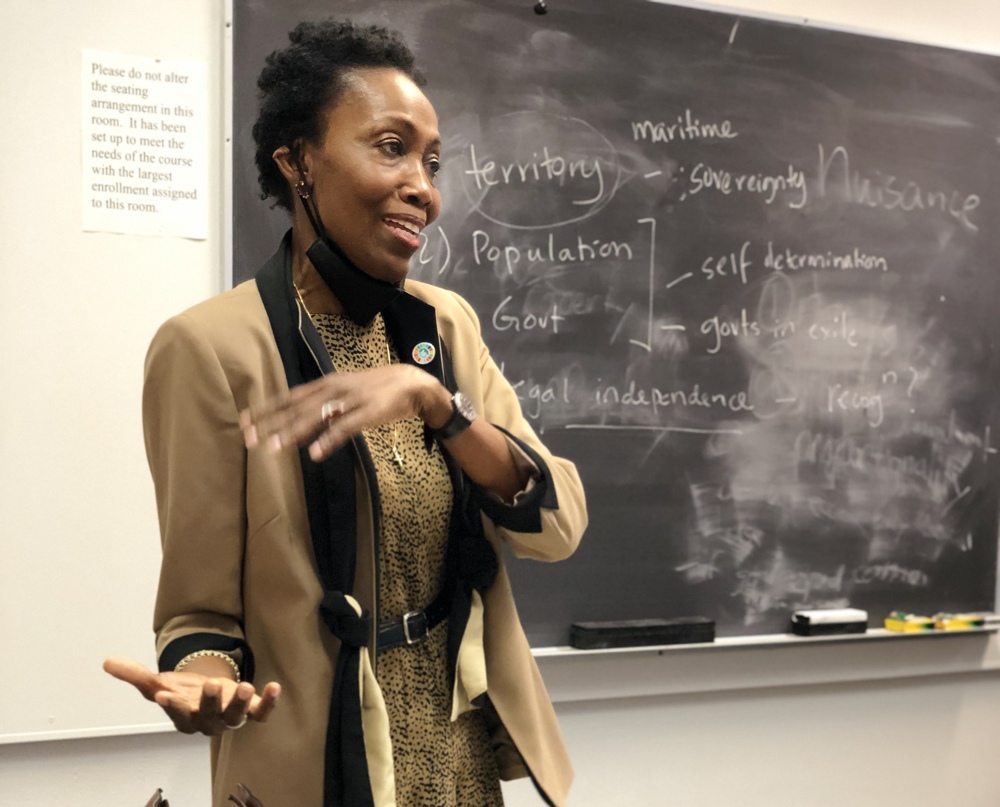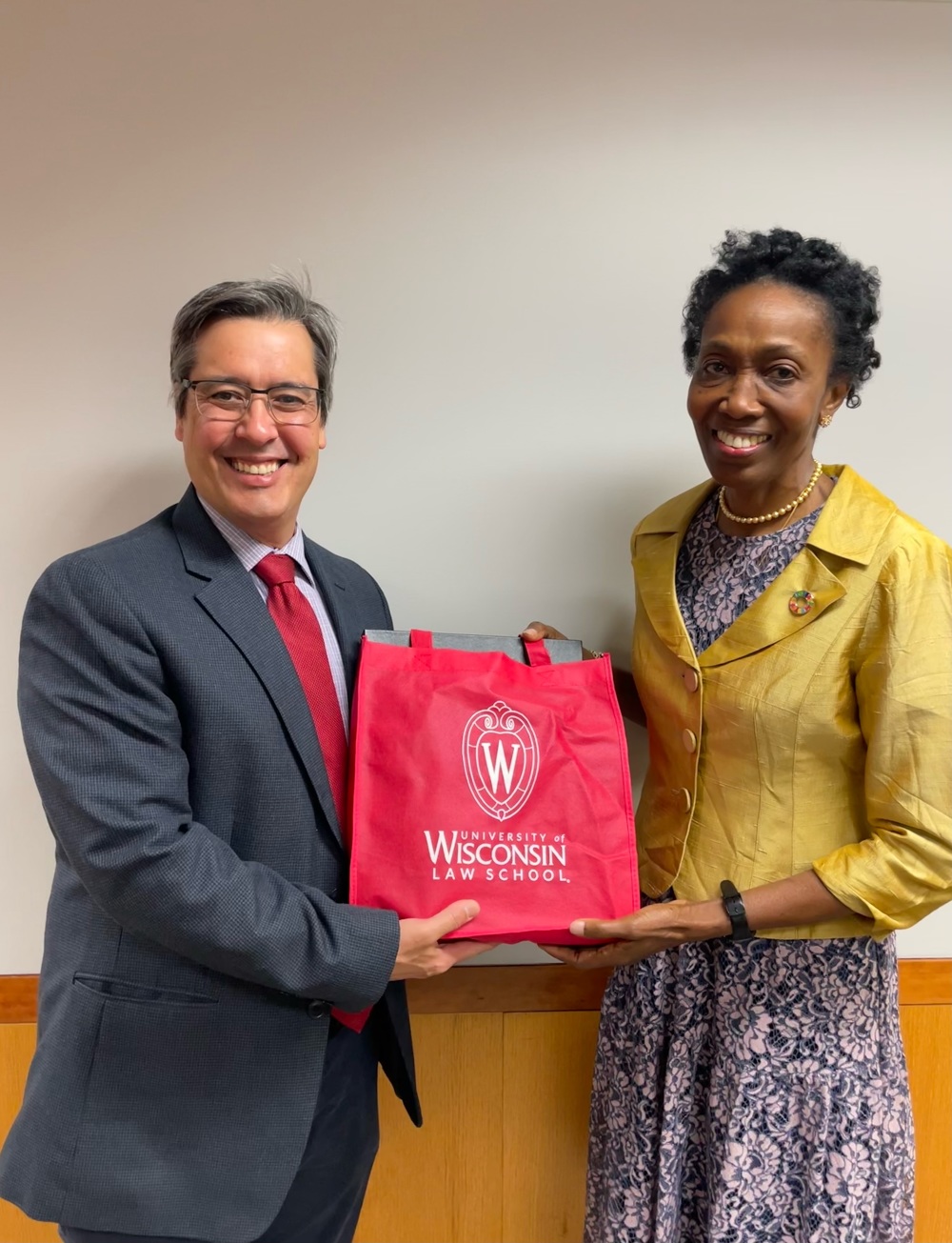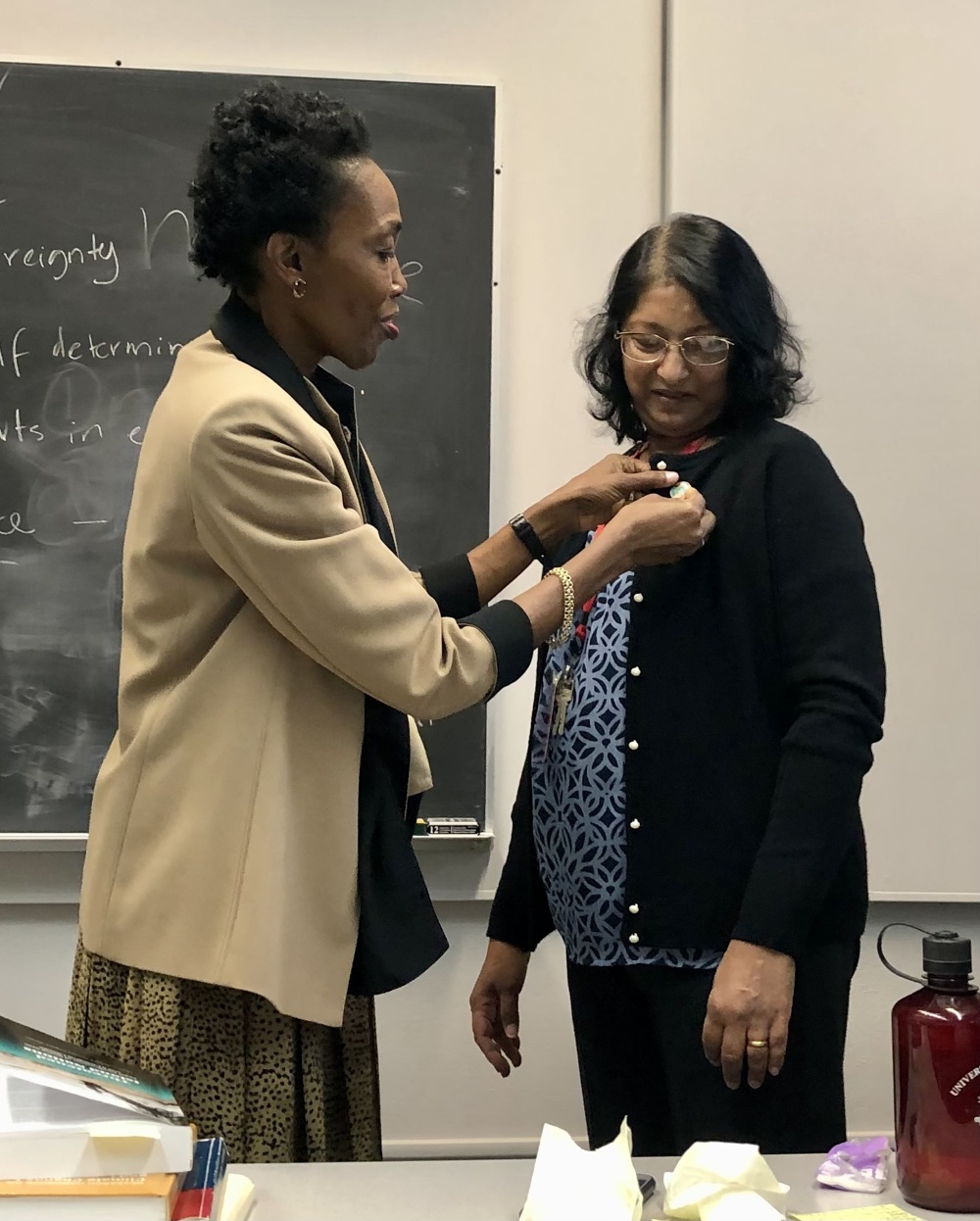
University of Wisconsin Law School students recently had the opportunity to learn from Grenadian Diplomat Dessima Williams, a climate change and human rights expert who recently served as the inaugural Distinguished Visiting Scholar in Human Rights.
Williams served as Grenada's Ambassador to the United Nations from 2009-13, and as the chair of the Alliance of Small Island Developing States, leading a 40-island global climate change effort through climate change negotiations. She has been an advocate for children and women’s rights and a long-time supporter of sustainable development.
In 2016, Williams was appointed Special Adviser for Implementation of the Sustainable Development Goals at the United Nations. She has served as Strategic Adviser to Oxfam International on climate change.
During her UW residency, Williams participated in the Wisconsin International Law Journal Symposium on climate law, discussing climate negotiations in relation to small island states.
"Hosting Diplomat Dessima Williams was a great honor," said UW Law School Dean Daniel Tokaji. "She brings an extraordinary breadth of knowledge and unique perspective to the challenges posed by climate change. It’s been a rare privilege for our students to meet and learn from such a learned expert on a subject of unparalleled importance."

Williams met with law students as part of the Directed Research on Climate Change, which is under the supervision of Dr. Sumudu Atapattu, a leading scholar on law and climate change. Williams also shared her experiences with Atapattu’s International Law: Climate Change, Human Rights, and the Environment class for second- and third-year law and graduate students. Pupils in the class have been examining the legal issues surrounding what happens when individual states physically disappear or become uninhabitable due to climate change.
During the visit, Atapattu received the 1.5 pin from Williams. The number 1.5 represents the goal of limiting temperature increase caused by climate change to 1.5 degrees Celsius. The pin was received in honor of Atapattu's work toward climate change.

"I was very honored to receive the pin from Diplomat Williams," said Atapattu. "And I was incredibly honored that she chose to spend time with my students exploring very complicated issues surrounding climate change. For my students to have the opportunity to learn from, and have a dialogue with, such an incredible scholar who was also living through climate consequences was really valuable."
Williams has taught at secondary, college and university levels and is an advocate for the rights of women and children, for farmers, and for rural development. She is the founder and executive director of the Grenada Education and Development Programme, which works with rural, school-aged girls and boys and supports them as emerging leaders.
In addition to speaking to law students, Williams taught in several undergraduate classes including Professor Alexandra Huneeus’ climate justice class, spoke to King Morgridge Scholars, and students of IS Major, and gave a lecture at Madison East High School. Williams' residency was supported by UW Law School and the Institute for Regional and International Studies National Resource Center within UW-Madison’s International Division.
Submitted by Law School News on May 4, 2022
This article appears in the categories: Features
Related employee profiles: Sumudu Atapattu, Daniel Tokaji